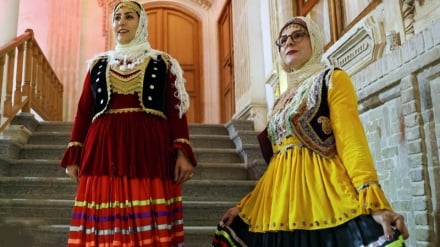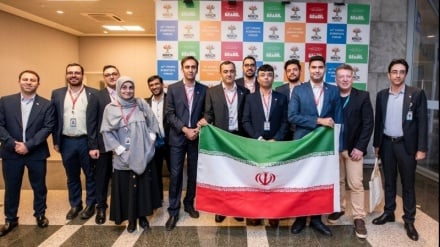BRICS news | World moves toward multilateralism; from culture, environment to international diplomacy
-

Submission of Russia\'s climate goals to the UN
Pars Today – In an innovative move, cinemas in China are being transformed into science classrooms.
The launch of China’s national project for teaching science through cinema, the designation of a new biosphere reserve in Malaysia, Russia’s presentation of its climate goals, and the Russian president’s emphasis on developing new international institutions at the Valdai Forum were among the most significant BRICS developments of the past week — as reported in this Pars Today news package, citing TVBRICS.
China: Teaching science through the silver screen
The Chinese government has unveiled a nationwide initiative that uses cinema as a creative tool to promote science education. Introduced through immersive technology displays and interactive exhibitions at the China Science and Technology Museum, the project aims to make complex scientific concepts more engaging and accessible to the general public.
As part of this initiative, high-quality science productions are being created for dome and giant-screen formats to provide visually striking and educational experiences in planetariums and science museums across the country. The project primarily focuses on areas such as space exploration and technological innovation. Chinese officials describe it as a major step toward integrating art and education, reflecting China’s commitment to enhancing public understanding of science and advancing national innovation.
Malaysia: A natural treasure gains global recognition
The United Nations Educational, Scientific and Cultural Organization (UNESCO) has designated the Kinabatangan River in Malaysia’s Sabah state as the country’s newest biosphere reserve. Covering an area of over 413,000 hectares, the region serves as a vital habitat for hundreds of rare and endangered species, including the Bornean orangutan, pygmy elephant, and sun bear.
The reserve is home to 315 bird species, 127 mammals, and more than 1,000 plant species. Malaysia’s Ministry of Natural Resources described the designation as proof of the state government’s and local communities’ commitment to preserving biodiversity. With this recognition, Malaysia now holds its fourth UNESCO biosphere reserve, following Crocker Range, Tasik Chini, and Penang Hill.
Russia: Strengthening climate commitments
Russia has submitted its updated climate goals to the United Nations. Under the new plan, Moscow pledges to reduce its greenhouse gas emissions to 65–67 percent of 1990 levels by 2035. This target is more ambitious than its previous commitment — a 70 percent reduction by 2030 — and takes into account the maximum absorption capacity of forests and ecosystems.
The Russian Ministry of Economic Development emphasized that the plan aims to integrate sustainable economic growth with climate responsibility and underscores the importance of non-discriminatory access to low-carbon technologies. The program also relies on data from Russia’s National Climate Monitoring System.
Putin: A new era of diplomacy in emerging institutions
Russian President Vladimir Putin, speaking at the 22nd annual meeting of the Valdai Discussion Club, outlined his perspective on the role of international institutions and emphasized that the expansion of the BRICS community and the Shanghai Cooperation Organization (SCO) is taking place in the spirit of 21st-century diplomacy. Putin noted a key characteristic shared by these international bodies: all these new structures operate not on the basis of hierarchy or dependence on a dominant power.
“They are not against anyone; they are for themselves,” Putin stated.
The Russian president also announced BRICS plans to establish a new low-risk investment platform, which will initially focus on emerging markets in Africa and South Asia. Highlighting that BRICS accounts for 40 percent of global GDP, Putin stressed Russia’s strong interest in being fully integrated into this development process.


